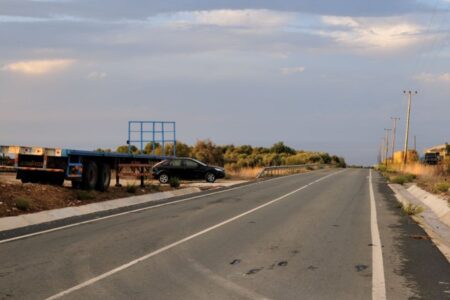Cyprus, a sunny Mediterranean island, with its abundant sunny days, is an ideal place for the implementation and development of solar energy. In recent years, there has been a significant increase in interest in alternative energy sources on the island, particularly solar panels, which provide environmentally friendly and virtually free energy. In this article, we will explore the principles of solar panels, their advantages, the process of installation and usage in Cyprus, as well as a government support program for the installation of solar panels.
Contents
- 1 Historical perspective and significance of solar energy
- 2 How solar panels work
- 3 Installation and factors affecting efficiency
- 4 Types of solar panels and their features
- 5 Net-Metering in Cyprus: interaction with the power grid
- 6 Permission process for installation and connection
- 7 Economic benefits and payback period
- 8 Government subsidy program for solar panel installation
- 9 Environmental impact
- 10 Prospects for solar energy development in Cyprus
Historical perspective and significance of solar energy
Solar panels as an energy source are not a new technology. Since the 1970s, they have been used on space stations, and since then, their technology has significantly advanced and become more accessible for private use. Today, solar panels not only help reduce electricity bills but also represent one of the most important elements in the fight against climate change by reducing households’ carbon footprints.
Cyprus, with more than 300 sunny days a year, has enormous potential for the development of solar energy. This potential can become the key to the island’s energy independence, which currently relies heavily on imported fossil fuels for electricity generation.
How solar panels work
Solar panels convert solar energy into electricity through the photovoltaic effect. Photovoltaic cells, usually made from silicon, are the foundation of each solar panel. When light photons hit the semiconductor plate, they knock electrons off the outer orbits of the silicon atoms. These freed electrons begin to move, creating an electric current.
The energy generation process is not limited to the solar panel alone. To fully utilize this energy in household conditions, additional components are required. The direct current generated by the panels must be converted to alternating current using an inverter. Additionally, batteries can be included in the system to store excess energy produced for use at night or on cloudy days.
Installation and factors affecting efficiency
Several factors are important for the installation of solar panels, determining their performance. The main ones include:
Panel area
The larger the area of installed panels, the more energy they can generate.
Sunlight intensity
Cyprus, with its sunny climate, provides ideal conditions for solar panels.
Tilt angle and orientation
The optimal orientation of panels in Cyprus is south-facing with a tilt angle of about 28°-30°.
Geographical location and weather
Despite the generally sunny climate, weather and house location can also affect the panels’ efficiency.
Each of these factors plays a role in ensuring maximum system performance. Incorrect installation or consideration of only a few factors can reduce overall efficiency and, consequently, the economic benefit of using solar panels.
Types of solar panels and their features
There are several types of solar panels on the market, each with its own features and advantages. The most common include:
Monocrystalline panels
These panels are made from single-crystal silicon, making them more efficient in converting solar energy but also more expensive to produce.
Polycrystalline panels
Made from multiple silicon crystals, these panels are cheaper to produce but less efficient than monocrystalline ones.
Thin-film panels
These are lighter and more flexible but less efficient and are more commonly used in industrial installations or for covering large surfaces.
The choice of panel type depends on specific conditions and installation goals. For example, if roof space is limited, it is better to choose higher-efficiency panels like monocrystalline ones.
Net-Metering in Cyprus: interaction with the power grid
Net-metering is a system that allows solar panel users to integrate with the national power grid by sending excess energy produced back to the grid and offsetting it against consumption during the night or periods of low sunlight. This means that users only pay for the difference between the amount of energy consumed and produced.
In Cyprus, the net-metering system is actively supported by the government. Within this program, individuals and companies can install systems up to 10 kW and connect them to the grid. If the energy produced exceeds what is consumed, the excess is carried over to the next two-month billing period. This significantly reduces electricity costs and makes the use of solar panels even more attractive.
Permission process for installation and connection
The process of installing solar panels requires obtaining permits and coordination with the Electricity Authority of Cyprus (EAC). To obtain a permit for a net-metering system installation, several steps must be completed:
- Submit an application to the EAC, providing all necessary documents, including copies of electricity bills, proof of ownership of the building, and a building permit.
- Pay an administrative fee that includes the cost of meter replacement and system connection.
- After the system is installed, apply for inspection and connection to the grid.
The EAC is responsible for inspecting the system and connecting it to the grid within a specified timeframe. If installation is not completed within 60 working days, the permit will expire.
Economic benefits and payback period
One of the key advantages of solar panels is their economic efficiency. The payback period for a system in Cyprus is around 5-6 years, depending on the system’s size and operating conditions. During this period, the savings on electricity bills fully cover the initial installation investment.
The lifespan of solar panels usually exceeds 20 years, allowing system owners to enjoy virtually free electricity after the payback period ends. The panels usually come with a 25-year warranty, which confirms their long-term reliability and economic feasibility.
Government subsidy program for solar panel installation
The Cypriot government actively supports the adoption of solar panels by offering various subsidy programs. One of the latest programs, launched in February, provides subsidies for the installation of solar panels for different household categories.
There are three categories of subsidies:
- Category A1: For households with initial capital, offering a subsidy of €375 per installed kW.
- Category A2: For vulnerable households with a family member critically dependent on electricity, providing a subsidy of €1,250 per 1 kW of installed capacity.
- Category A3: “Solar Panels for All” is aimed at households without sufficient capital for independent installation, offering a subsidy of €250 per 1 kW of installed capacity.
This program aims to expand access to solar energy for all population groups and create conditions for maximizing Cyprus’s solar potential.
Environmental impact
The use of solar panels is crucial for environmental protection. Unlike traditional energy sources such as coal and gas, solar energy does not produce carbon dioxide emissions or other harmful substances, making it one of the cleanest and most environmentally friendly technologies for generating electricity.
Moreover, using solar panels reduces reliance on imported energy resources, strengthening Cyprus’s energy independence and minimizing the environmental impact of fossil fuel extraction and transportation.
Prospects for solar energy development in Cyprus
Given the favorable climate conditions and government support, the prospects for solar energy development in Cyprus look very promising. Continuous technological advancements, decreasing production and installation costs of solar panels, and growing awareness of the need to transition to renewable energy sources create excellent conditions for further sector growth.
Additionally, the implementation of innovative approaches such as “smart” energy grids and integration with other renewable energy sources, such as wind energy, could be the next steps toward achieving full energy independence for Cyprus.
















